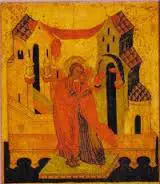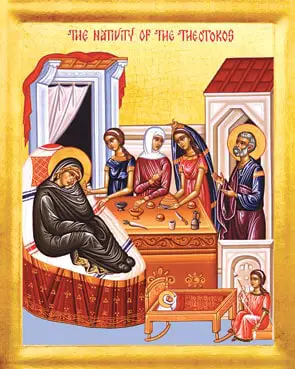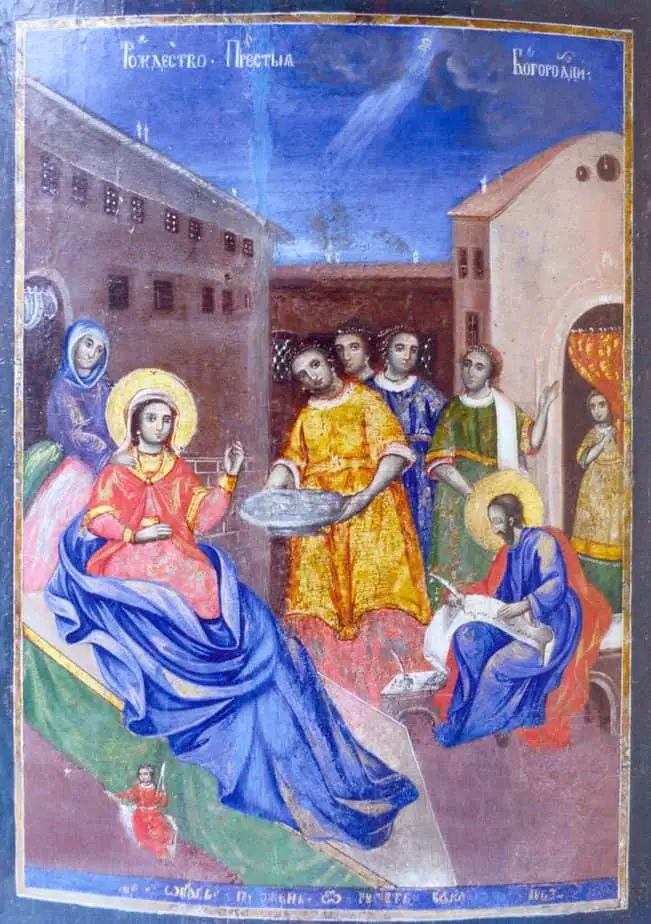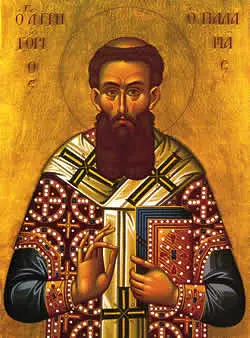St. Andrew of Crete: Who indeed was This Virgin and from what sort of parents . . .

Who indeed was This Virgin and from what sort of parents did She come? Mary, the glory of all, was born of the tribe of David, and from the seed of Joachim. She was descended from Eve, and was the child of Anna. Joachim was a gentle man, pious, raised in God’s law. Living prudently and walking before God he grew old without child: the years of his prime provided no continuation of his lineage. Anna was likewise God-loving, prudent, but barren; she lived in harmony with her husband, but was childless. As much concerned about this, as about the observance of the law of the Lord, she indeed was daily stung by the grief of childlessness and suffered that which is the usual lot of the childless — she grieved, she sorrowed, she was distressed, and impatient at being childless.
Thus, Joachim and his spouse lamented that they had no successor to continue their line; yet the spark of hope was not extinguished in them completely: both intensified their prayer about the granting to them of a child to continue their line. In imitation of the prayer heard of Hannah (1 Kings 1: 10), both without leaving the temple fervently beseeched God that He would undo her sterility and make fruitful her childlessness. And they did not give up on their efforts, until their wish be fulfilled. The Bestower of gifts did not contemn the gift of their hope. The unceasing power came quickly in help to those praying and beseeching God, and it made capable both the one and the other to produce and bear a child. In such manner, from sterile and barren parents, as it were from irrigated trees, was borne for us a most glorious fruition — the all-pure Virgin.
The constraints of infertility were destroyed — prayer, upright manner of life, these rendered them fruitful; the childless begat a Child, and the childless woman was made an happy mother.
+ St. Andrew of Crete, Excerpt from the Sermon on the Nativity of the Virgin Mary
St. Andrew of Crete: Who indeed was This Virgin and from what sort of parents . . . Read More »


